Male engagement groups help create a new cycle of positive domestic practices
When Paulino Martinho Assane first heard activists in his community of Mutcave, in Mozambique’s Nampula province, talk about male engagement in family life, he was captivated.
The session covered the importance of preventing domestic violence, men contributing to domestic activities and child care, and supporting wives throughout pregnancy and delivery. The activists who delivered the session were trained by the Alcançar: Achieving Quality Health Services for Women and Children project, which is implemented by a consortium of international and national partners and led by FHI 360. Alcançar is funded by the U.S. Agency for International Development (USAID).
Assane, who has four children with his wife of 24 years, knew after the session that he wanted to get involved in the Alcançar project.
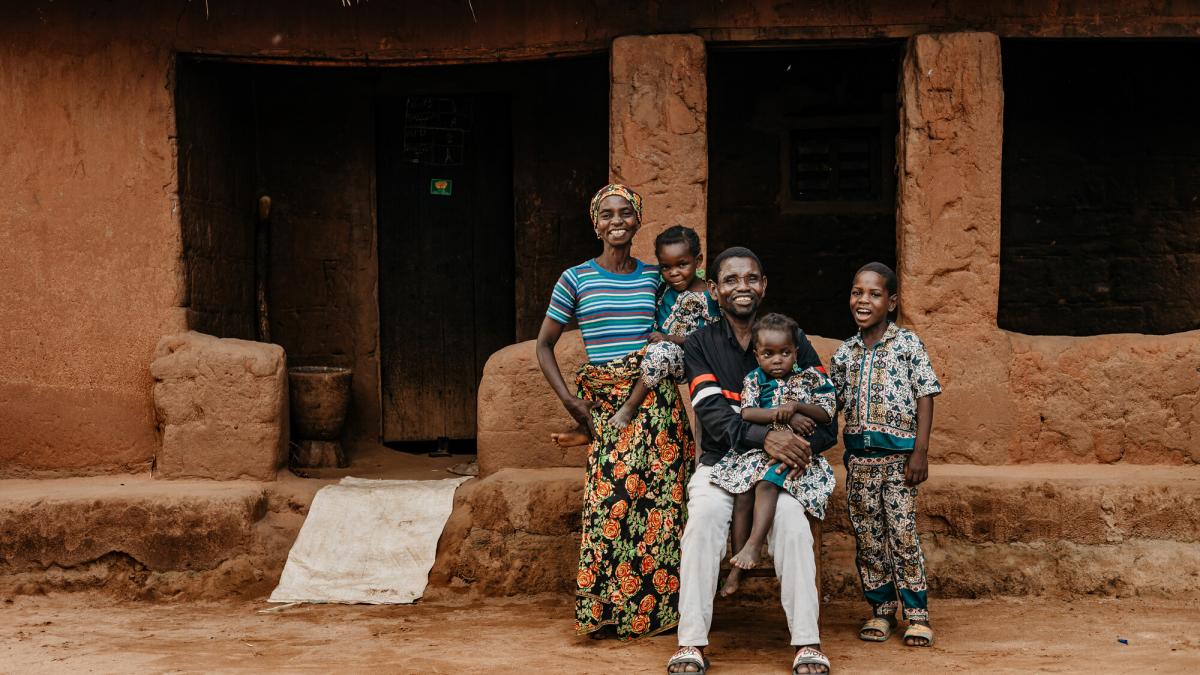
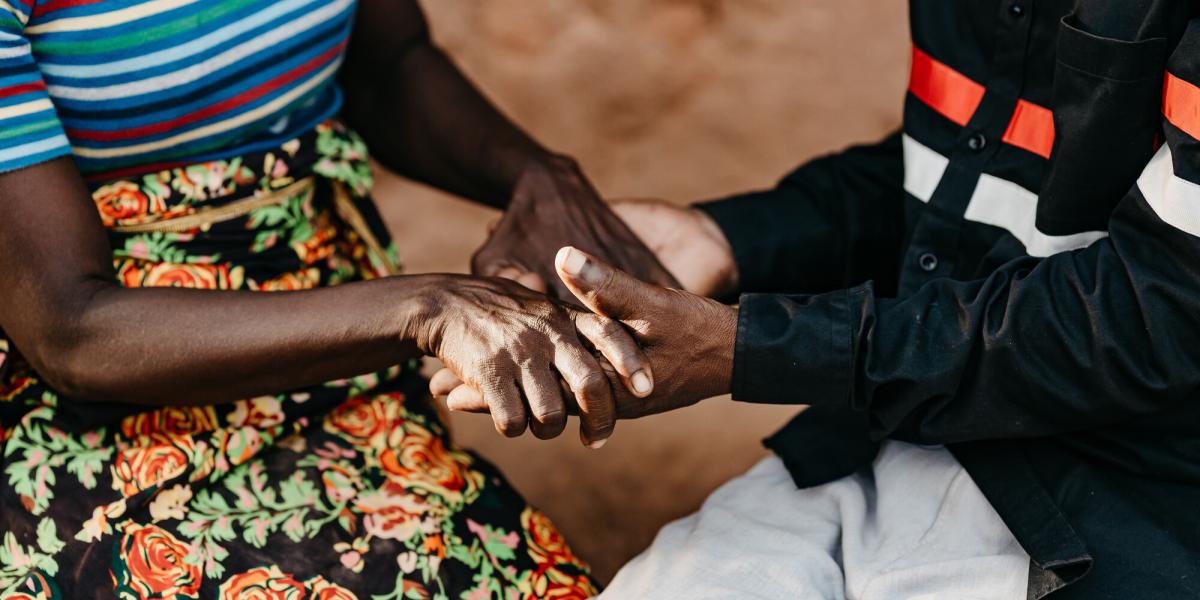
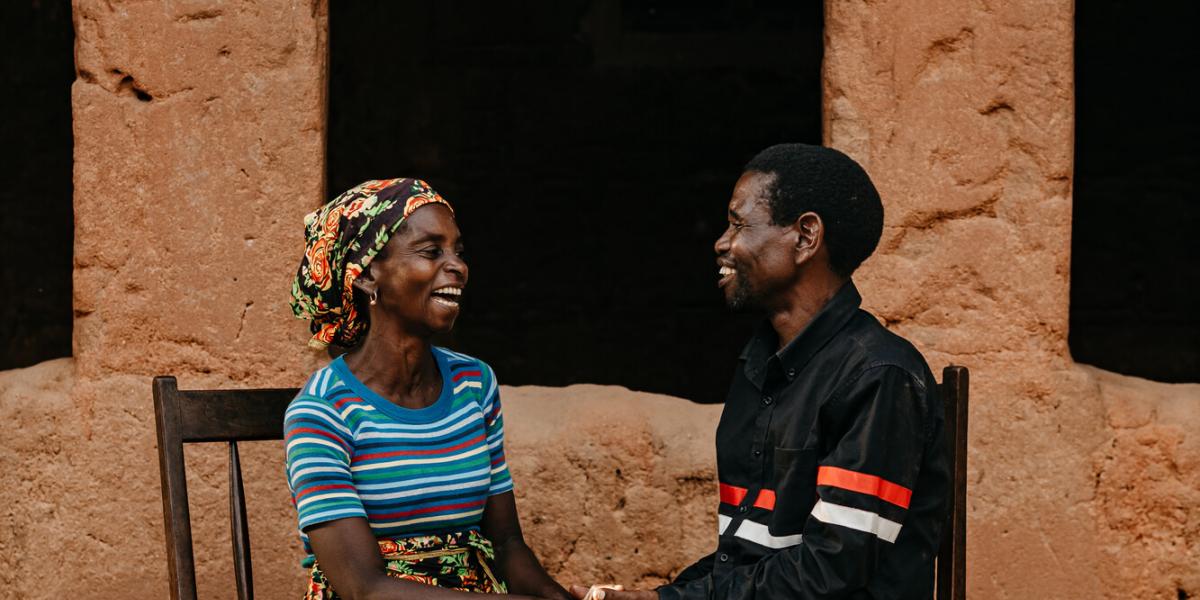
Top: Paulino Martinho Assane and his wife, Consida Maria Manuel, smile for the camera with their two daughters and nephew. The couple is engaged in community activities led by individuals who were trained by the Alcançar project.
“We have a tradition that goes against these practices,” says Assane. He explains that, in his community, men are the traditional head of the family and often don’t participate in chores or other household activities.
Now, Assane is part of a men’s dialogue group organized by the Alcançar project that promotes male engagement in family life. “It [The Alcançar project] helps to abandon harmful practices within the family,” he says.
“[The project] has affected me positively because I see that there is harmony and well-being in my home,” Assane says. “I take the messages to other people, like neighbors, [and] say that the Alcançar project spreads good messages about family coexistence.”
Reducing maternal mortality
In 2020, it was estimated that for every 100,000 live births in Mozambique, there were at least 408 maternal deaths. That’s 83% higher than the 2020 global maternal mortality rate.
The number of maternal deaths in Mozambique is greatly influenced by delays in receiving adequate care. The harm caused by these delays highlights the importance of supporting mothers every step of the way.
The Alcançar project aims to reduce maternal, newborn and child mortality in Mozambique’s Nampula and Zambezia provinces and supports high-impact, high-quality, patient-centered and gender-transformative maternal, newborn and child health services.
“Supporting maternal, newborn and child health doesn’t stop at the health facility — it extends to the community level,” says Ester Murray, Alcançar’s gender and youth advisor at FHI 360. “Applying a gender lens to our programming has positioned the Alcançar project for sustained impact in the community as well as in individual households.”
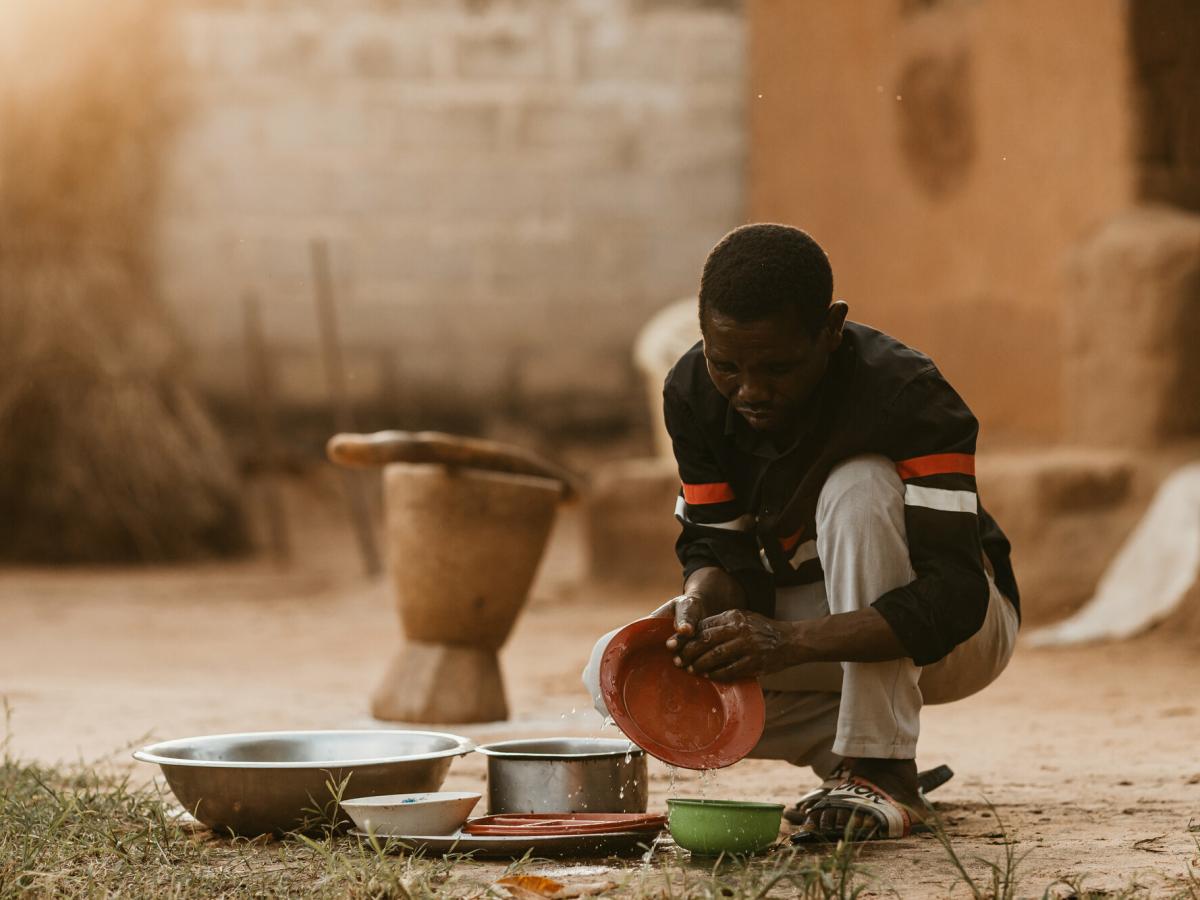
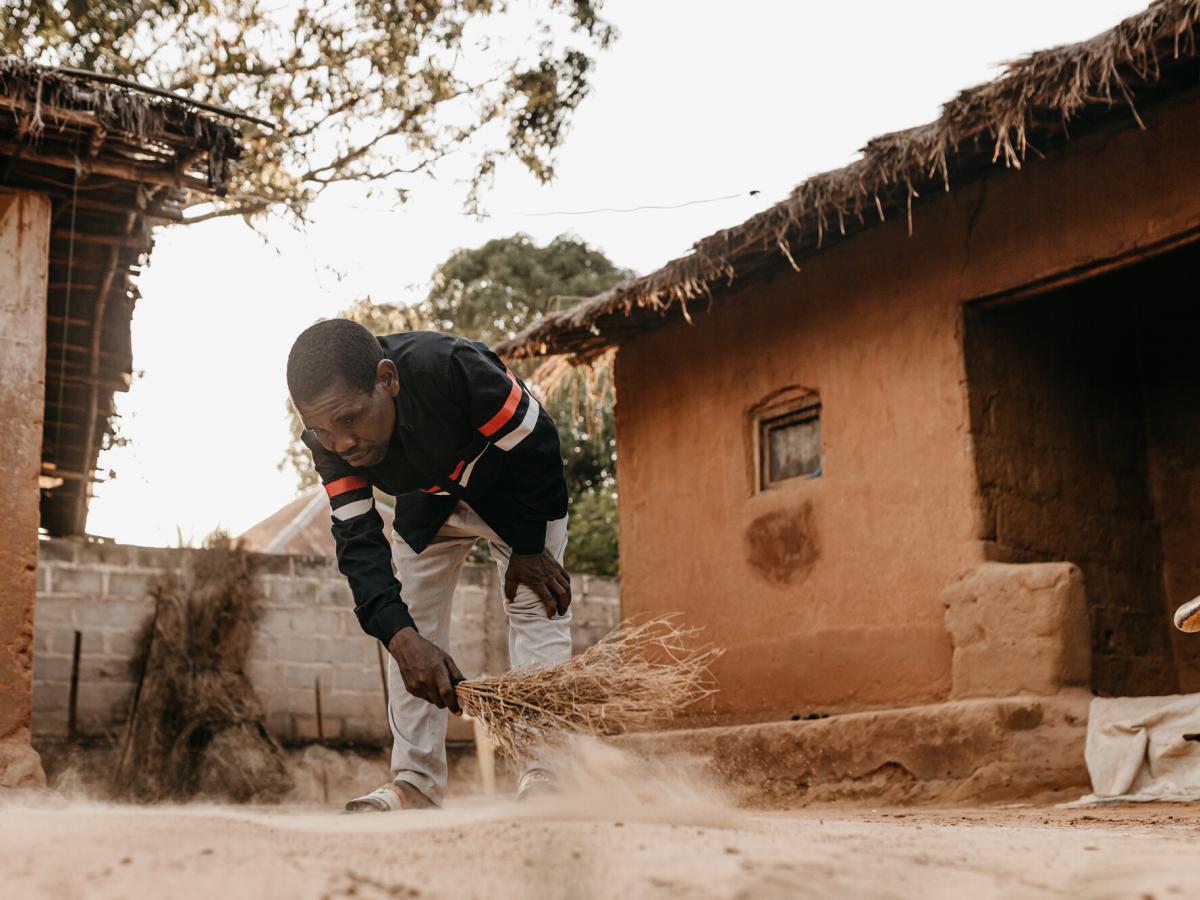

Top: Assane washes dishes and sweeps the ground. He participates in a men’s dialogue group that promotes male engagement in family life. Bottom: Assane smiles with his nephew.
The Alcançar project takes several measures to address the inequities that underpin maternal, newborn and child health challenges. These inequities include women’s lack of access to information, health facilities and other services; inadequate maternity care; gender-based violence; and lack of male involvement in maternal, newborn and child health. One of the project’s measures is a gender and social inclusion approach that prioritizes simultaneous female empowerment and male engagement.
Seeing changes in the household and in the community
Consida Maria Manuel, Assane’s wife, also participated in lectures organized by the Alcançar project and delivered by local partners. Both Manuel and Assane say the project’s dialogue groups have positively affected their relationship.
“He changed,” Manuel says of her husband. Previously, Assane had refused to cook for the family. But now, he “piles and washes the dishes when I am sick,” she says. “He even cooks for me and for our children.”
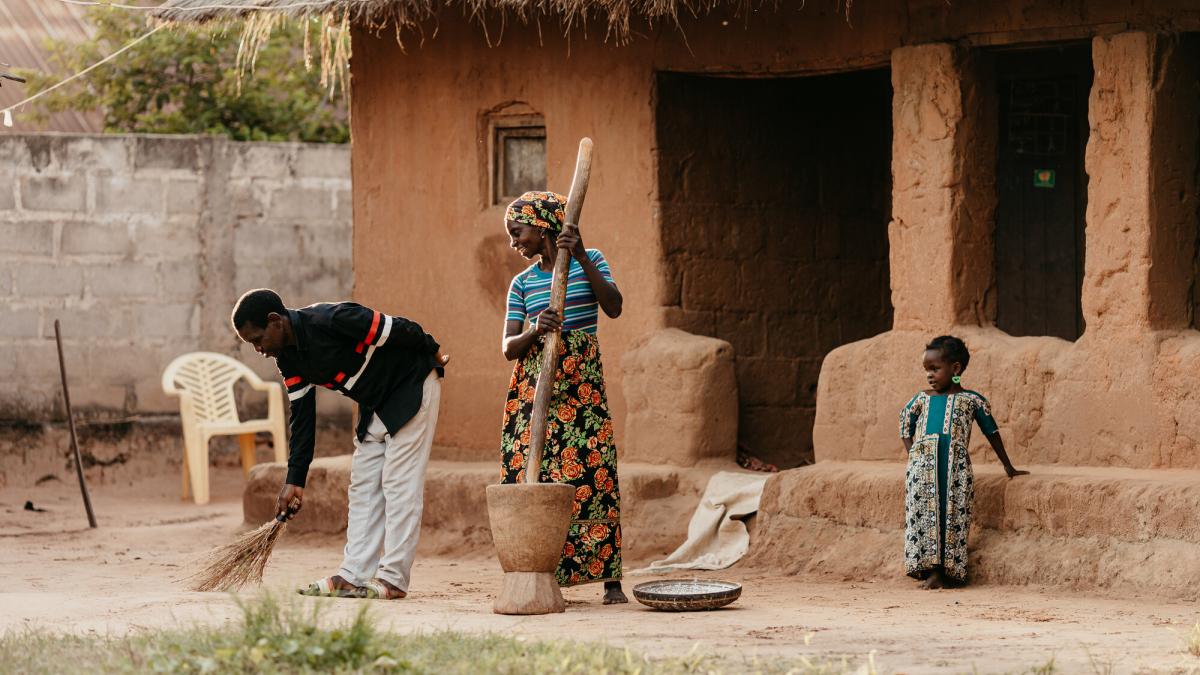
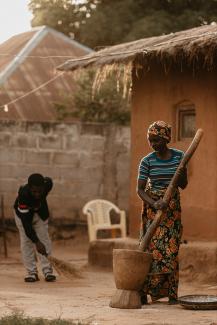
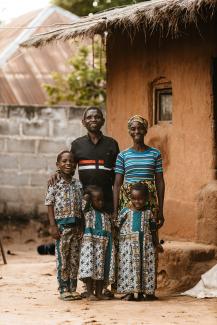
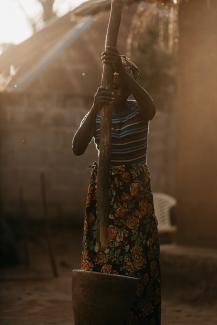
Assane and Manuel do chores together. The couple says that since they became engaged in community dialogues led by individuals trained by Alcançar, Assane has participated more in household activities and their relationship is stronger.
The men’s dialogue groups consist of about 15 participants at a time. They meet, on average, two to four times per month for a duration of three months. Participants can choose when to meet according to their schedules.
Another member of the male dialogue group, Daniel Rafael António, says, “Our community has changed a lot. Before, I was neglectful of my wife’s health. But with Alcançar, I learned that I should accompany my wife to the health facility to get prenatal care and help her with household chores.”
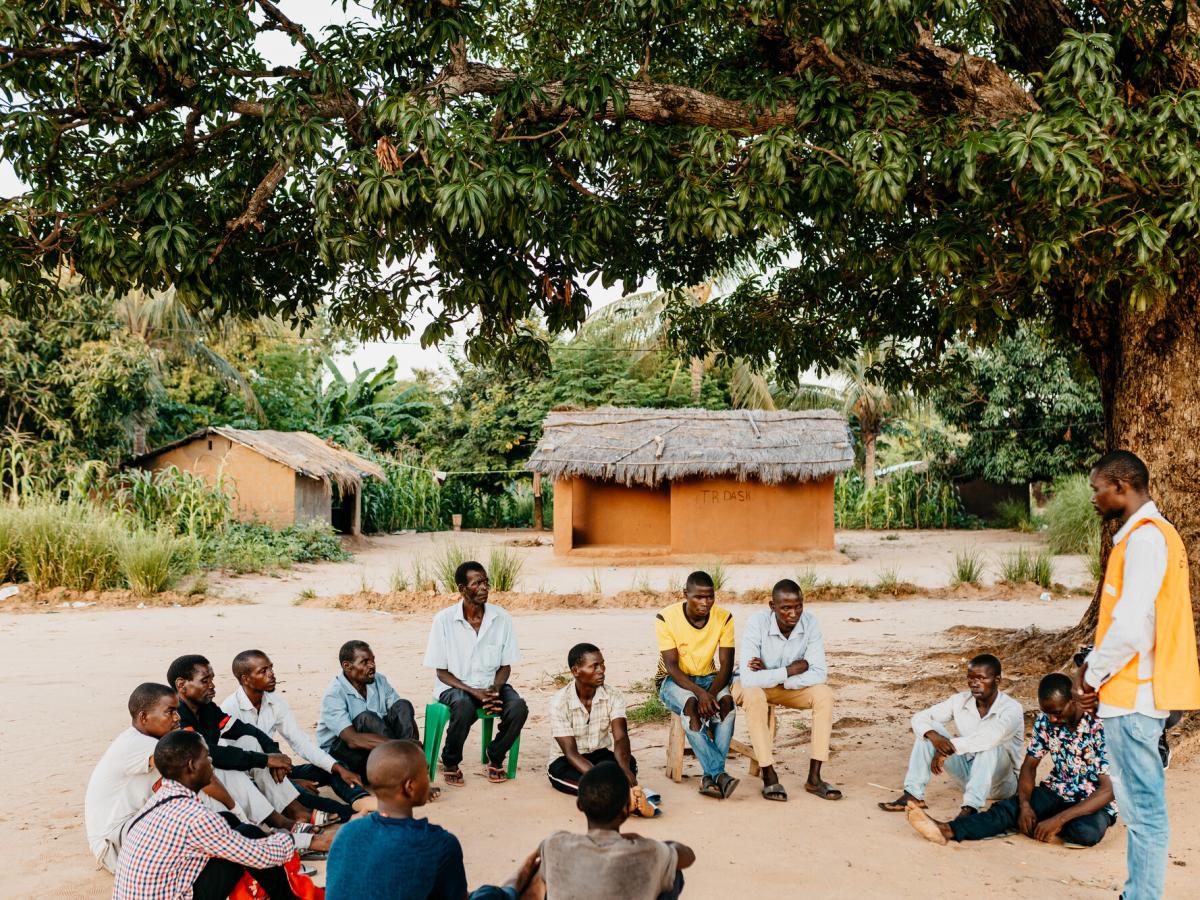
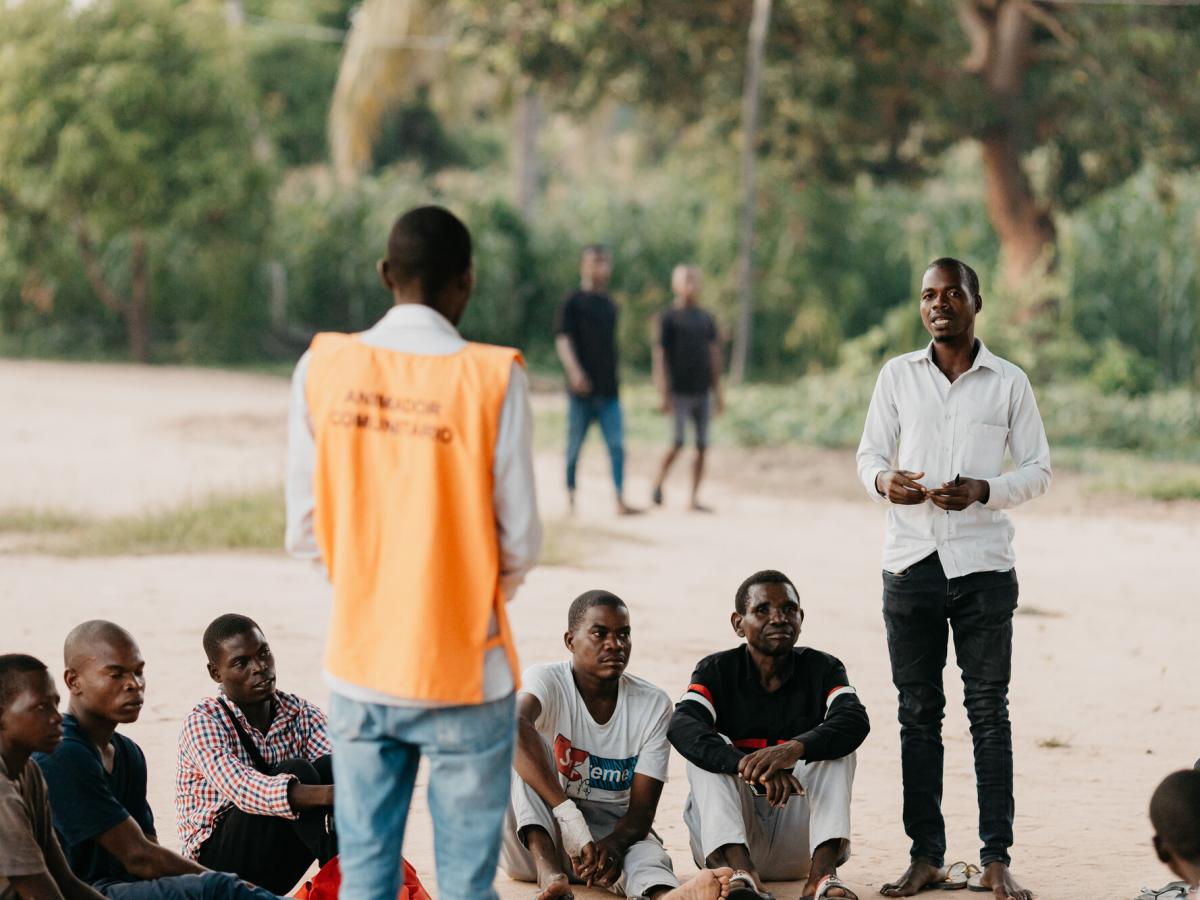
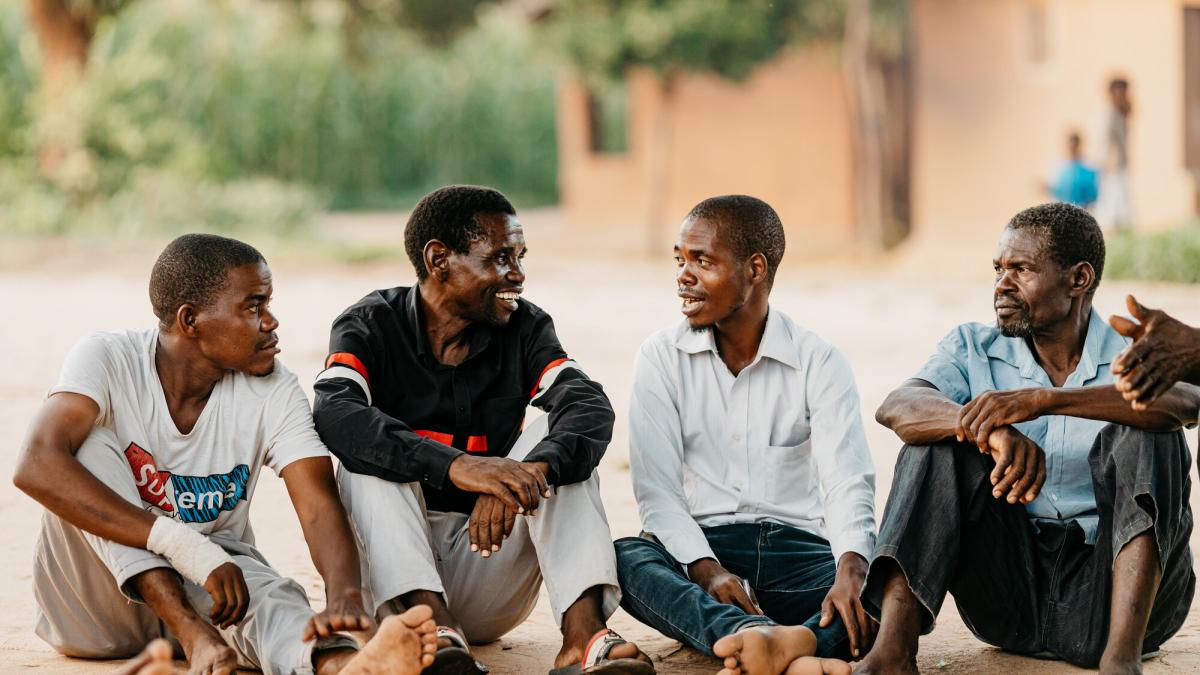
A men’s dialogue group, whose leader was trained by the Alcançar project, meets to discuss male engagement in family life. Top right: Daniel Rafael António speaks during the meeting. Bottom: Assane (second from left) and António (second from right) speak with each other.
Community reflection sessions organized by Alcançar, which invite all members of a community, encompass a range of topics, including addressing gender and power dynamics; being an involved father; improving maternal and child nutrition; and preventing sexual harassment, abuse and exploitation. The Alcançar project also organizes other engagement groups, including mixed groups with men and women as well as youth groups.
“In the men’s dialogue groups, I learned that I should participate in the life of my family, as well as in the health of the woman and the child,” says Luciano Xander, another participant. “Now, I take my wife for checkups during her pregnancy to see if the baby is well or not.”
Putting ideas into practice for the next generation
Assane and Manuel are passing on what they’ve learned through the Alcançar project to their four children, who range in age from 4 to 16 years old.
“They have the opportunity to learn by seeing,” says Assane, who says he educates his children every day by letting them see him put the project’s messages into practice.
“I tell them everything that I learn and have learned [through] the Alcançar project,” says Manuel. In particular, she tells her sons that when they get married, they should help their wives with household activities, accompany them to the hospital when they are sick and help them care for their children.
Now that Assane has started modeling these behaviors, “there is harmony and well-being in my home,” he says.
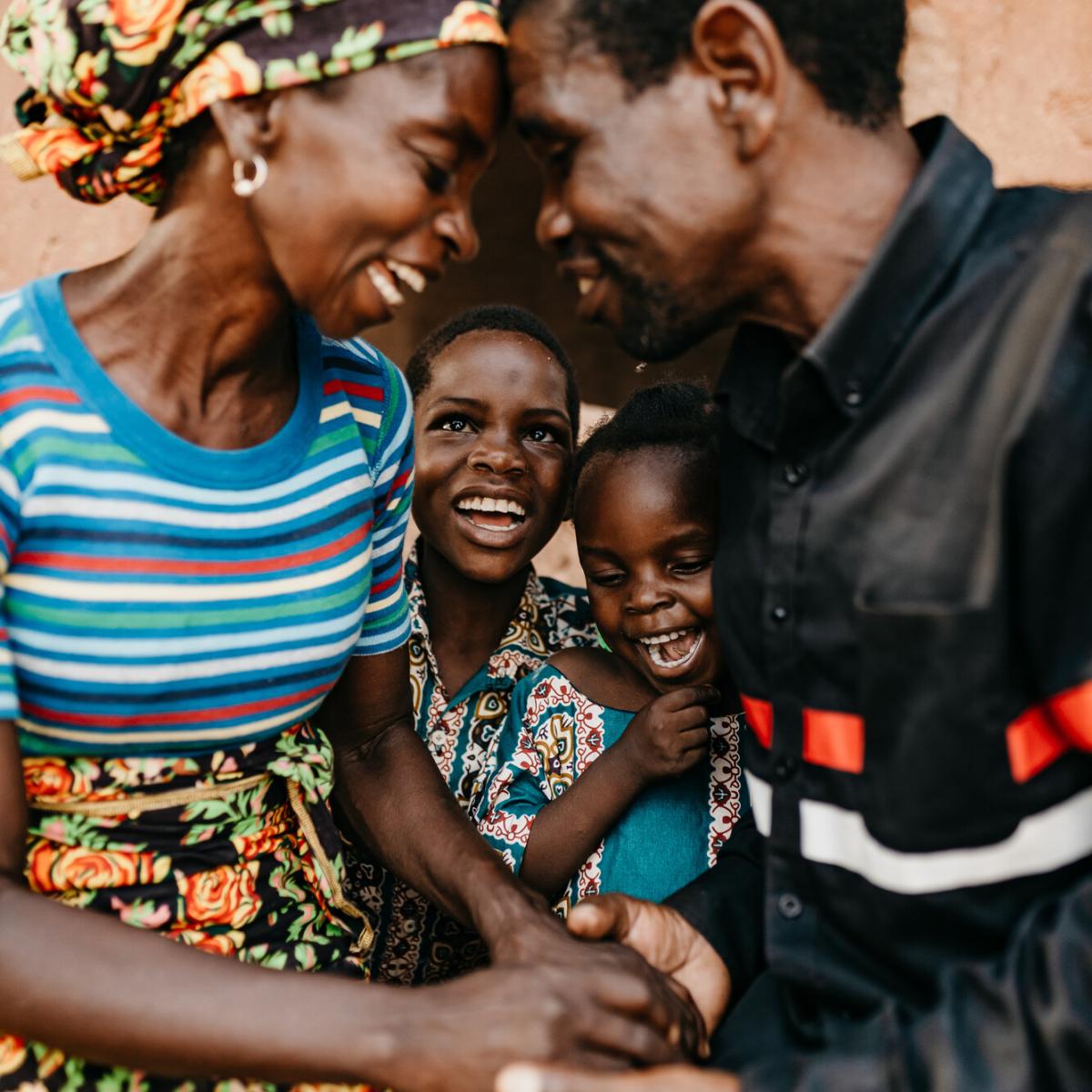
Assane and Manuel with their nephew and daughter.
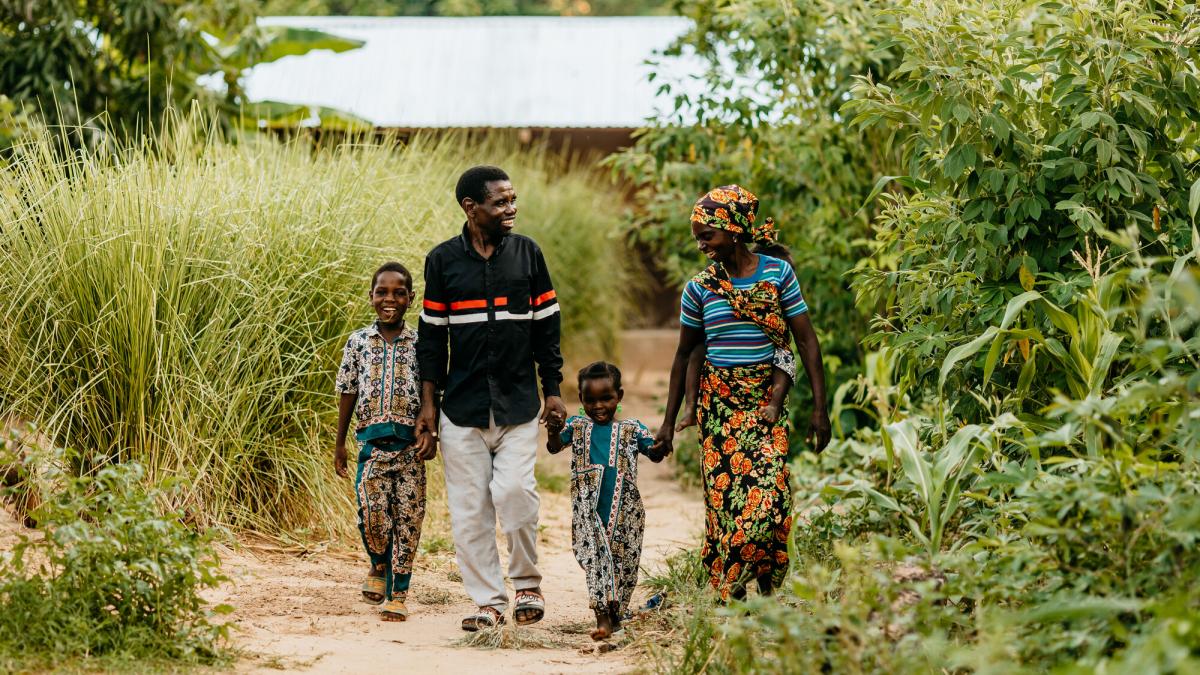
Assane and Manuel walk with their nephew and daughters. Since Assane began participating in a men’s dialogue group led by Alcançar-trained individuals, Manuel says of him, “He changed.”
About this story
The Alcançar: Achieving Quality Health Services for Women and Children project is funded by USAID. Alcançar is implemented by a consortium of eight international and national partners, led by FHI 360. The consortium partners are Dimagi, Ehale, Institute for Healthcare Improvement (IHI), Viamo, Associaçăo de Jovens de Nacala (AJN), HOPEM and PRONTO International.
The men’s dialogue group in this story was one of several organized by Alcançar in Nampula and Zambezia provinces. The consortium partners used the Gender Equality, Social Inclusion, and Youth in Maternal, Neonatal, and Child Health Training Toolkit developed by FHI 360 to generate understanding among health professionals and community workers about gender equality, social inclusion and youth in the context of maternal, newborn and child health.
Photos by Mbuto Machili for FHI 360, and video by Alwin Sheriff/FHI 360. Photo © 2023 FHI 360; licensed under CC BY-NC 4.0.

